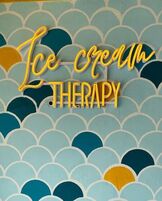|
von Pascale Gränicher  Sultry nights, sticky ice cream hands, muddy brains - this is summer at its best. It is hard to focus if the sun constantly burns down and sweat drips tireless from and to everywhere. Heat waves are great when you have nothing else to do but to read a good book under a parasol, lie on a beach and sip a refreshing coconut. Yes… Oven-like offices and physio practices are definitely not the place to keep a cool head. It is hard to concentrate when your brain is busy coordinating body's own cooling processes instead of thinking about intelligent stuff or composing therapy programs for injured patients. The number of work-related injuries seems to increase in hot weather. Due to physiological limitations (e.g. decreased blood flow, central fatigue), the ability to work decreases in temperatures above 26°C. Since concentration and motor skills can also be impaired, the risk of mistakes and accidents has been shown to increase in high temperatures. In addition, body core temperature rises, causing a shift from aerobic to anaerobic energy production. This means, muscles' energy stores empty much faster and we get tired and sluggish. In summer, life takes place more outdoors and outdoor activities seem to encourage more accidents (apart from the under-the-parasol-book-reading-part). But there are also a few positive aspects of this hot summer – apart from the seamless tan and barbecue:
Remember: Your body and brain cool down in hot weather, so try to be cool, too. References Biedermann, T. et al. (2010). Human Eccrine Sweat Gland Cells Can Reconstitute a Stratified Epidermis. J Investig Dermatol; 130(8): 1996-2009 Holick, M.F. (2004). Sunlight and vitamin D for bone health and prevention of autoimmune diseases, cancers, and cardiovascular disease. Am J Clin Nutr; 80: 1678-1688. Krysiak R, Szwajkosz, A. & Okopien, B. (2018). The effect of low vitamin D status on sexual functioning and depressive symptoms in apparently healthy men: a pilot study. Int J Impot Res; doi: 10.1038/s41443-018-0041-7. [Epub ahead of print] Kjellstrom, T., Kovats, R.S., Lloyd S.J., et al. (2009). The direct impact of climat change on regional labor productivity. Arch Environ Occup Health; 64:217-227. Lambert, G.W., Reid, C., Kaye, D.M., Jennings, G.L. & Esler, M.D. (2002). Effect of sunlight and season on serotonin turnover in the brain. Lancet; 360(9348):1840-1842. Mihyang, A., Colarelli, S.M., O’Brien, K. & Boyaijan, M.E. (2016). Why We Need More Nature at Work: Effects of Natural Elements and Sunlight on Employee Mental Health and Work Attitudes. PLos One; 11(5): e0155614 Otte im Kampe, E., Kovats, S. & Hajat, S. (2016). Impact of high ambient temperature on unintentional injuries in high-income countries: a narrative systematic literature review. BJM Open; 11,6(2): e010399. Sheng, R. et al. (2018). Does hot weather affect work-related injury? A case-crossover study in Guangzhou, China. Int J Hyg Environ Health; 221(3):423-428.
0 Comments
Your comment will be posted after it is approved.
Leave a Reply. |
AutorSchreiben Sie etwas über sich. Es muss nichts ausgefallenes sein, nur ein kleiner Überblick. Archiv
September 2023
Kategorien |
|
science2practice GmbH EVIDENZBASIERTE FORTBILDUNGEN Asylstrasse 32 CH-8708 Männedorf Email: info@science2practice.ch Telefon: +41 (0) 78 642 05 97 |
|
